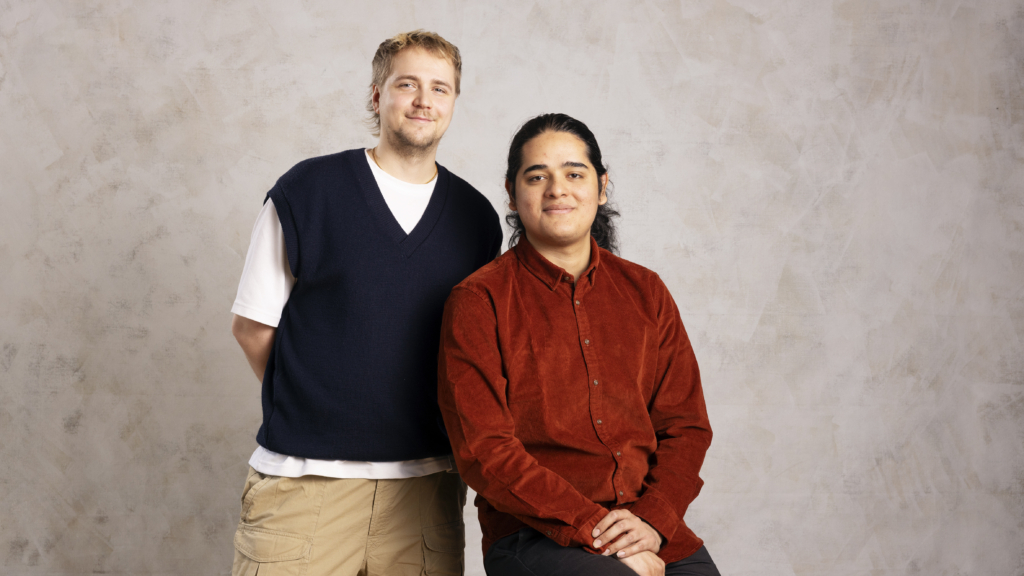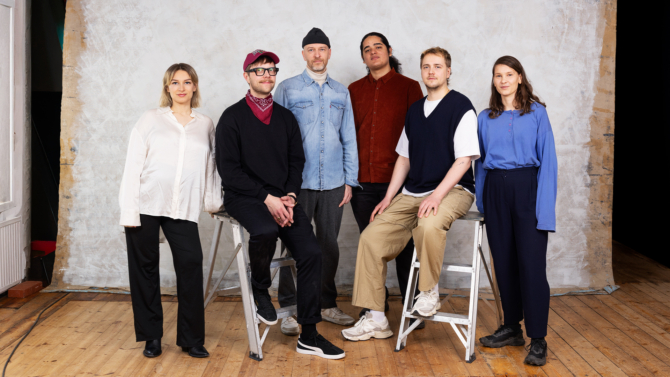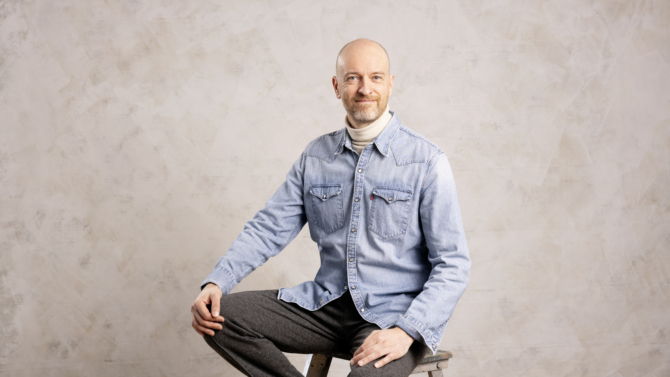Tell us more about the Kaikkialla project. What kinds of themes or questions do you want to address through it?
Veikko Timonen and Arman Zafari: The film is about a shopping centre security guard, Marko. He tries to forget a capture that happened during a work assignment and culminated in the death of an Afghan man. Escaping the guilt proves difficult when Marko returns to work and meets the relatives of the deceased person. Our film explores the breakdown of identity, the feeling of guilt, and the use of structural power and its effects. We are interested in employing the means of film to reflect on who can justify their actions by invoking the rules and who the rules actually either protect or destabilise.
How did you end up working together, and how do you complement each other in the work process?
Timonen and Zafari: We met when we started our studies at Aalto University’s Department of Film at the same time. We noticed early on that we share a similar creative approach to filmmaking. We complement each other in that Arman is particularly fascinated by the story-oriented nature of the film and Veikko is fascinated by the character-centred approach, for example. We work together to develop stories in which a strong narrative meets multidimensional characters.
Zafari: For me and my family, stories have always been a way to deal with difficult and complex experiences. Storytelling is a way to create meaning even when reality seems chaotic. A good story works like a saying: it makes you feel that even nonsensical things can have meaning. In my opinion, the power of stories lies in the fact that they spark thoughts and insights on a deeper level and, ideally, in a touching way.
Timonen: I am interested in building psychologically accurate and deep characters and writing class-conscious stories. Since each work always assumes some kind of relationship with class, it is important to me for that relationship to be chosen carefully in the script writing phase. I get excited the most when I get to collaborate with inspiring and ambitious directors. This is why cooperation with Arman is just as rewarding every time.
What do you want to say through your film?
Timonen: I find myself repeatedly writing characters who try to control things beyond their control. Marko in the film Kaikkialla fits this trope very firmly. He believes in rules, looking for a sense of control and security from them. As he begins to question these rules, the sense of control evaporates. It is interesting to get to know Marko’s character more deeply and explore how his journey can be presented to the audience as cinematically as possible.
Zafari: I am interested in people’s perception of their own identity and how it can crumble in different life situations. I myself have lived as a refugee in several countries and cultures, which has made identity a subject of both early and personal reflection for me. In the film Kaikkialla, I examine these themes. The main character Marko’s identity is strongly built through his profession: he sees himself as a good guard who maintains order and security. When a capture situation ends tragically, Marko’s identity begins to falter. Through the conflict, Marko has to face what his perception of himself and his role really means.
What made you apply to Kehittämö? What do you hope for from the programme and what do you want to develop in your project?
Timonen and Zafari: We want to continue working as a pair on feature films and extensive projects. Kehittämö provides us with a unique opportunity for these exact pursuits. Until now, we have mainly made short films, so there are still new and partly unknown areas for us to explore in the process of making a feature film.
The mentoring and peace of mind offered by the studio gives us the opportunity to explore the narrative possibilities and structural challenges of a feature film in great depth. The long-term work over the course of a year allows the core idea of the film to become clearer as we delve into the world of the film without interruption.
Interviewer: Ella Jaakkola
Photo: Riitta Supperi



